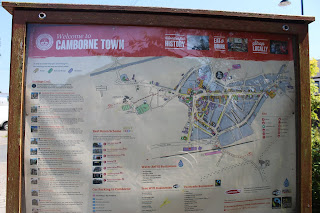Back in the early nineteenth century, Thomas Hood wrote the sonnet Silence, in which he compared silence in its more literal definition:
with a different kind of silence, a silence of loss and passing that attaches itself to places where humans have worked and lived out their days, but which are now deserted:
https://www.royalcornwallmuseum.org.uk/
So I do understand, and indeed feel myself, that there can be a kind of wistfulness, even a sadness, to the places that we humans have left behind. And yet…
…I’m not sure that, in my heart, I completely agree with Thomas Hood. As I walked through the remains of these stones at Merry Maidens on June 9th, I found myself enjoying the march of nature. Foxgloves, stitchwort, heath-spotted orchids, clovers, trefoils, tormentil, heathers, pignut and bedstraw, the call of a cuckoo in the distance, a kestrel hovering overhead, black crows soaring across the fields, wrens chattering in the gorse bushes, scurryings in the undergrowth (a lizard, a vole?)…What I did not find in this place was any separation from the people that lived here, no loss of impact of lives once lived, whether endured or enjoyed. Not because my life is like theirs, but because I recognized them as my ancestors, and because what I found here was continuity. Because this place was teeming with life. Not human life but, nonetheless, life in all its messy, vibrant, glorious existence.

I think that one of our problems, as humans, is that all too often we perceive ourselves as separate from the world of nature. This is the blessing, but also the curse, of self-consciousness. We obsess about our own immediate past, when we should be relishing the present and mindfulness of the future.
Cornwall's west end is alive and breathing, not just a dead or historic place of antiquities. Humans may not be in charge of these abandoned ruins and stone circles any more, but we can still be visitors who can enjoy, watch and appreciate and, indeed, be part of the pageant of life that struts its course through this particular corner of our beloved Cornwall.
Palden and Lynne


















































